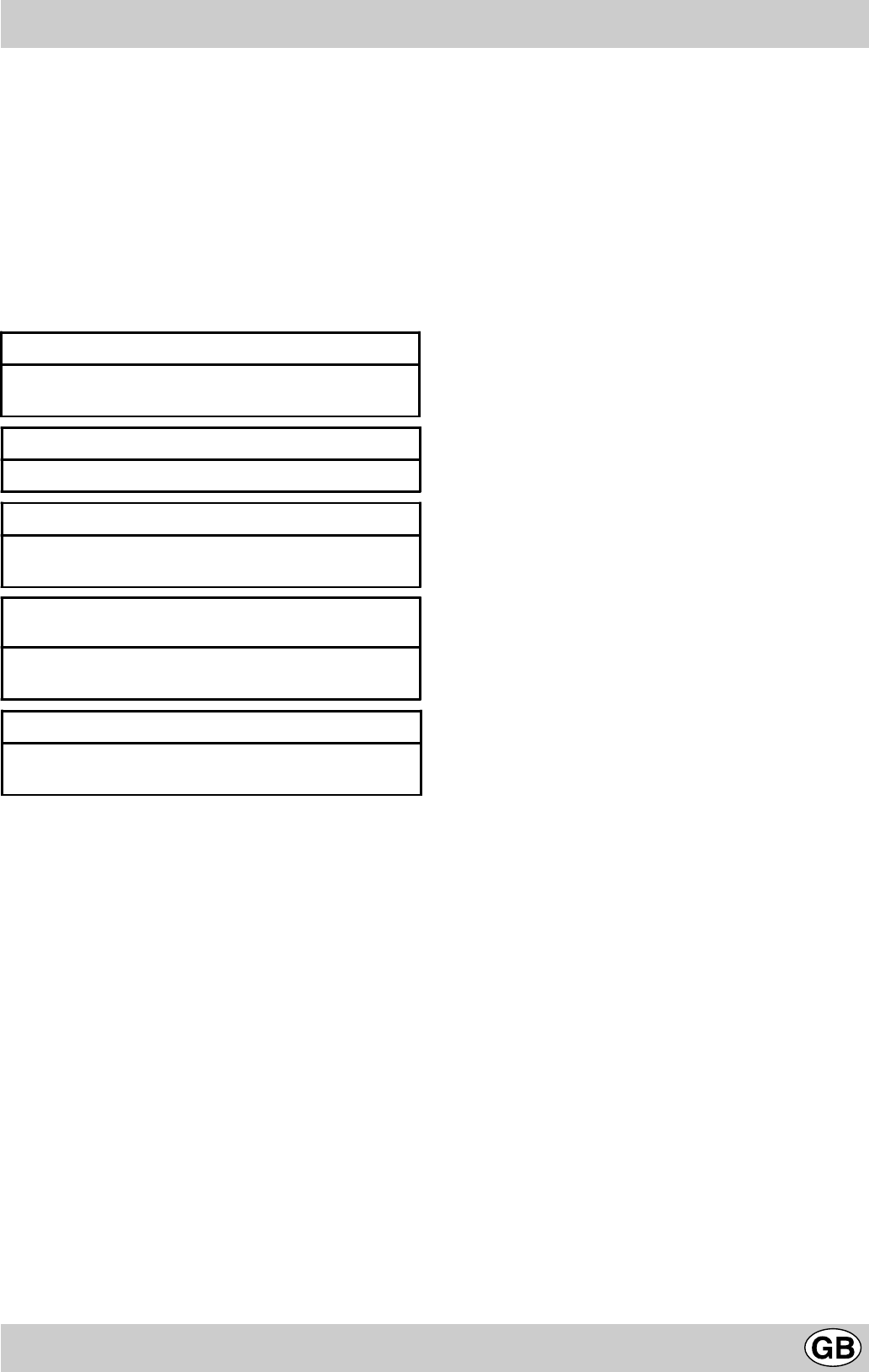
11
The oven offers a wide range of alternatives which allow
you to cook any type of food in the best possible way. With
time you will learn to make the best use of this versatile
cooking appliance and the following directions are only a
guideline which may be varied according to your own per-
sonal experience.
Baking cakes
The oven should always be warm before putting in cakes
wait till the end of preheating (about 10-15 min.). Cake-
baking temperatures are normally around 160°C/200°C.
Do not open the oven door during the baking process as
this could cause the cake to sink.In general:
Cooking fish and meat
When cooking white meat, fowl and fish use low
temperatures. (150°C-175°C). When red meat must be
superficially well-cooked but succulent inside, it is
advisable to start with a high temperature (200-220°C)
for a short time, and then to reduce it at a later point.
Generally speaking, the more meat there is, the lower the
temperature and the longer the cooking time should
be.Place the meat in the centre of the grid and put a spill-
tray underneath to catch grease drips. Insert the grid so
that it is in the middle of the oven. If more heat from below
is required, use the 1° bottom shelf.
To grill
When using any of the grilling modes, it is recommended
that the thermostat knob be turned to the highest setting,
as it is the most efficient way to use the grill (which
utilizes infrared rays). If necessary, however, the
thermostat can be set to lower temperatures for grilling.
When using the grill functions, place the grid on the
lower racks (see cooking table) then, to prevent fat and
grease from dripping onto the bottom of the oven and
smoke from forming, place a dripping-pan on the 1st
oven rack from the bottom.
Important: always use the grill with the oven door
closed. This will allow you both to obtain excellent results
and to save on energy (approximately 10%). Table 1
includes the recommended temperatures, cooking times
and positions for you to obtain the best results when
cooking.
Cooking advice
Pastry is too dry
Increase the temperature by 10°C and reduce the
cooking time.
Pastry dropped
Use less liquid or lower the temperature by 10°C.
Cooked well on the inside but sticky on the
outside
Use less liquid, lower the temperature, and increase
the cooking time.
The pastry sticks to the pan
Grease the pan well and sprinkle it with a dusting of
flour.
Pastry is too dark on top
Place it on a lower rack, lower the temperature, and
increase the cooking time.


















